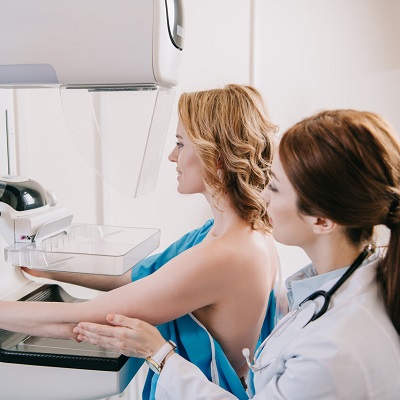Breast cancer is one of the most prevalent cancers affecting women globally, and early detection through regular screening can significantly improve outcomes. Mammogram awareness workshops play a crucial role in educating women about the importance of screening and providing access to this life-saving procedure. In Islamabad, the capital city of Pakistan, such workshops have emerged as vital initiatives in the fight against breast cancer.
Importance of Mammograms:
Early Detection Saves Lives:
Early detection of breast cancer increases the chances of successful treatment and survival. Mammograms can detect abnormalities in breast tissue before they can be felt, allowing for prompt intervention and treatment.
Reducing Mortality Rates:
Studies have shown that regular mammogram screenings can reduce breast cancer mortality rates by detecting cancer at an early stage when it's most treatable. This underscores the importance of raising awareness about the significance of mammograms.
Understanding Mammogram Screening:
What is a Mammogram?
It is a crucial tool in breast cancer screening and can identify tumors before they are palpable.
Who Should Get Mammograms?
Women aged 40 and above, particularly those with a family history of breast cancer or other risk factors, should undergo regular mammogram screenings. However, recommendations may vary based on individual risk factors, so consulting with a healthcare provider is essential.
Frequency of Mammogram Screening:
The frequency of mammogram screenings depends on factors such as age, personal health history, and risk factors. Generally, women are advised to undergo mammograms annually or biennially starting at the age of 40.
Challenges in Accessing Mammograms:
Financial Constraints:
Cost can be a significant barrier to accessing mammogram screenings, especially for women from low-income backgrounds. Lack of insurance coverage or high out-of-pocket expenses may deter women from undergoing this crucial preventive measure.
Lack of Awareness:
Many women are unaware of the importance of mammograms or may have misconceptions about the procedure. Lack of education and awareness about breast cancer screening contributes to low participation rates in mammogram screenings.
Cultural and Societal Stigma:
In some communities, there exists a cultural stigma associated with discussing breast health or undergoing screenings. Fear, shame, and misconceptions about breast cancer may prevent women from seeking timely medical care.
Role of Mammogram Awareness Workshops:
Mammogram awareness workshops play a pivotal role in addressing these challenges and promoting breast health among women.
Education and Awareness Campaigns:
These workshops educate women about breast cancer, the importance of early detection, and the role of mammograms in saving lives. They dispel myths and misconceptions surrounding breast health and encourage proactive healthcare-seeking behavior.
Providing Access to Screening:
Many workshops collaborate with healthcare providers to offer free or subsidized mammogram screenings to underserved communities. By removing financial barriers, these workshops ensure that all women have access to this essential preventive healthcare service.
Addressing Stigma and Fear:
Through open dialogue and community engagement, mammogram awareness workshops work to break down cultural and societal barriers to breast cancer screening. By fostering a supportive and non-judgmental environment, they empower women to prioritize their health and well-being.
Impact of Mammogram Awareness Workshops:
Increased Participation in Screening:
Mammogram awareness workshops have been instrumental in increasing participation rates in mammogram screenings among women, particularly those from marginalized communities. By raising awareness and providing access, these initiatives have helped bridge the gap in breast cancer screening disparities.
Timely Detection of Breast Cancer:
The workshops' emphasis on early detection has led to the timely diagnosis of breast cancer in many cases, enabling prompt initiation of treatment and improving patient outcomes. By detecting cancer at an early stage, these screenings have saved countless lives.
Empowering Women to Prioritize Health:
Beyond screening, mammogram awareness workshops empower women to take charge of their health and advocate for themselves within their communities. By equipping women with knowledge and resources, these initiatives foster a culture of proactive healthcare-seeking behavior.
Mammogram Awareness Workshops in Islamabad:
In Islamabad, several organizations and initiatives are dedicated to raising awareness about breast cancer and promoting mammogram screenings.
Initiatives and Organizations:
Organizations such as Pink Ribbon Pakistan and Shaukat Khanum Memorial Cancer Hospital & Research Centre conduct regular mammogram awareness workshops and outreach programs in Islamabad and surrounding areas.
Outreach Programs:
These workshops often include educational sessions, interactive workshops, and on-site mammogram screenings to facilitate easy access for women in the community. Mobile mammography vans are also deployed to reach remote and underserved areas.
Conclusion:
Mammogram in Islamabad awareness workshops play a vital role in promoting breast health, raising awareness about the importance of mammogram screenings, and empowering women to prioritize their health and well-being. By addressing barriers to access, dispelling myths and misconceptions, and fostering a culture of proactive healthcare-seeking behavior, these initiatives save lives and contribute to healthier communities.
FAQs:
- What age should women start getting mammograms?
- Women aged 40 and above are generally advised to start getting mammograms, but individual recommendations may vary based on personal health history and risk factors.
- Are mammograms painful?
- Mammograms may cause some discomfort or pressure, but they are not typically painful. The procedure is quick and can help detect breast cancer at an early stage.
- How often should women get mammograms?
- The frequency of mammogram screenings depends on factors such as age, personal health history, and risk factors. Women are generally advised to undergo screenings annually or biennially starting at the age of 40.
- Are mammograms covered by insurance?
- Many insurance plans cover mammogram screenings as part of preventive healthcare services.
- What if a mammogram detects an abnormality?
- If a mammogram detects an abnormality, further diagnostic tests may be recommended to determine the nature of the abnormality and whether additional treatment is necessary.





Comments